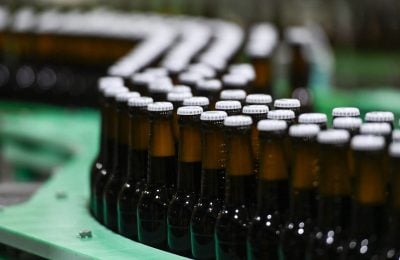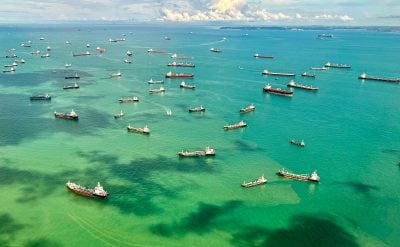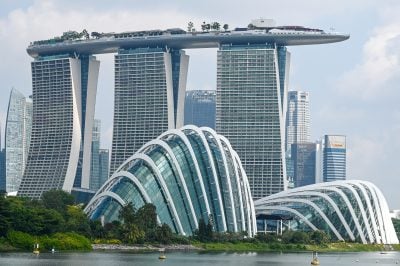Today, Nigerian food imports cost $11bn a year and the country is the world’s second-biggest rice importer. A further $350m will be committed to supporting cassava, sorghum and aquaculture cultivation over the next three years.
Although the oil sector accounts for 80% of government income, agriculture is more important than oil – and indeed than any other sector – in terms of GDP. As a result, greater emphasis on agriculture is perhaps the government’s most important task. The sector employs more people than anything else and there is greater potential for job creation in farming and food processing than in any other industry. It can promote economic growth in rural areas where there are few other options, thereby reducing poverty and slowing the pace of urbanisation.
It is estimated that agriculture accounted for about two thirds of GDP in 1960 but the history of the sector over the past five decades is a sorry tale indeed. Nigeria was an important exporter of palm oil, rice and other foodstuffs during the colonial era and during the first decade of independence but output actually fell during the 1970s as the oil industry took off. This is shocking given that the population was growing quickly at this time and that crop yields in other developing countries were increasing dramatically through a combination of improved seed strains, irrigation and greater use of fertilisers.
Since then, a succession of civilian and military governments has lined up to pledge support for Nigerian agriculture to boost employment and alleviate poverty but policy has been inconsistent, lacked commitment and under-funded. There has been no Nigerian Green Revolution and most farmers continue to produce food on a subsistence level rather than for sale. Today, Nigerian food imports cost $11bn a year and the country is the world’s second biggest rice importer.
When President Goodluck Jonathan came to power in 2011, he set a target of increasing total agricultural production by 15% – or 20m tonnes a year – by the time of the next election in 2015. Last year’s production increase was a long way behind target at 8m tonnes.
Speaking to members of the Eminent Persons Group on the Transformation of Nigeria’s Agricultural Sector in Switzerland, Jonathan called for a shift in the economy towards agriculture. He said: “Such a shift will not only reduce the billions of dollars we spend importing basic food items, but will also create millions of jobs, especially for our youth. This shift will also drive agricultural industrialisation as more agro-allied enterprises are established to process and add value to local foods for domestic and international markets.”
Last year’s big increase in production was particularly noteworthy given devastating flooding in many areas in October and November, particularly in northern states. The floods displaced an estimated 8m people and killed 363 others. According to the government, about 400,000 hectares of agricultural land were affected, although other sources put the figure much higher.
However, theAgriculture Minister, Akinwunmi Adeshina, says: “Nigeria has no business importing food. We should be a global powerhouse on food. We have launched an aggressive rice production programme to make us self-sufficient in rice and we put in place incentives for the private sector to produce rice locally: and it’s working.”
According to the Ministry of Agriculture, 14 new rice mills opened in 2012 with combined production capacity of 250,000 tonnes a year. The government has doubled import tariffs on milled rice and has even suggested that it will ban rice, sugar and fertiliser imports by 2015. The main export crop is cocoa and Nigeria is the world’s fourth-biggest cocoa producer.
It still lags a long way behind Ghana, Côte d’Ivoire and Indonesia, but Abuja has set a goal of doubling production to 500,000 tonnes a year by 2015. In addition, the Cocoa Processors Association of Nigeria has called for a ban on the export of unprocessed cocoa beans, in order to ensure that all processing takes place within Nigeria. Increased interest in cocoa production has triggered a period a new investment and takeover speculation. Most recently, in February, Cadbury Nigeria announced that it was to take over Stanmark Cocoa Processing Company and merge the two companies’ operations. Stanmark’s factory produces cocoa powder, butter and liquor, including all of the cocoa powder used in Cadbury Nigeria’s beverages.
Free mobiles for farmers
Abuja has promised that a combination of public and private money will provide the water, power and transport infrastructure needed to support farmers. Staple Crop Processing Zones are being set up to keep more of the benefits of the food supply chain in the country. However, perhaps the most highprofile element of the government’s agriculture strategy has been its Phone for Farmers scheme.
The Ministry of Agriculture aims to provide 10m farmers with mobile phones to ensure that they have good access to crop prices. There have been numerous high-profile scandals where traders have overcharged farmers for fertilisers, equipment and seeds. Similar schemes to improve access to farming information have proved successful in East Africa. The project will also enable the government to create a database of all farmers in the country and provide a means for the state to communicate directly with them in promotions for improved seed strains, fertilisers and other products. Under its Growth Enhancement Support (GES) scheme, the ministry plans to distribute e-vouchers to farmers, giving them discounts and allowing small-scale producers to buy industry goods directly from the state.
The scheme has attracted a great deal of controversy, with some suggesting that the government is seeking to buy votes in rural constituencies and others insisting that it is an expensive mistake. However, Adeshina told journalists: “Government policy must always be based on evidence and well analysed data. We carried out an analysis of our Growth Enhancement Support work based on a large sample of 426,000 farmers from various local government areas in 13 states. We found that 71% of the farmers sampled did not have cellphones.
This shows that many of our farmers in rural areas are quite poor and are excluded from the benefits of the mobile phone revolution going on in Nigeria. These farmers cannot access the GES scheme without cell phones and we must find a way to include them. They must not be left behind.” A variety of international organisations have swung their support behind Jonathan’s plans. The President’s 2015 production target may have become more achievable after the African Development Bank agreed to invest $150m in the country’s Agricultural Transformation Agenda in January, as part of a wider investment package.
A further $350m will be committed to supporting cassava, sorghum and aquaculture cultivation over the next three years. The money will be used to support food processing, marketing and distribution in selected areas with optimum conditions. The permanent secretary in the Ministry of Agriculture, Ibukun Odusote, said: “The crop processing centres will be provided with necessary infrastructure to attract investors who are willing to provide processing facilities to add value to the selected arable crops.”
The US Agency for International Development (USAID) has agreed to provide $3bn in credit guarantees for bank lending to Nigerian farmers for projects that increase production and promote processing ventures. At present, Nigerian banks are loath to lend money to farmers in general and small-scale farmers in particular.
The arrangement is designed to complement the Central Bank of Nigeria’s long winded Nigerian Incentives-Based Risk sharing System for Agricultural Lending (NIRSAL) scheme, which has $500m in capital and provides risk mitigation, financing, trading and other strategic assistance to agribusinesses. Such support from both international and domestic sources is much to be welcomed but must be maintained over many years if the full potential of Nigerian agriculture is to be tapped. Moreover, access to all the agricultural data in the world will be worthless if the government does not ensure that adequate water, power and transport infrastructure is provided.
Want to continue reading? Subscribe today.
You've read all your free articles for this month! Subscribe now to enjoy full access to our content.
Digital Monthly
£8.00 / month
Receive full unlimited access to our articles, opinions, podcasts and more.
Digital Yearly
£70.00 / year
Our best value offer - save £26 and gain access to all of our digital content for an entire year!
 Sign in with Google
Sign in with Google 


